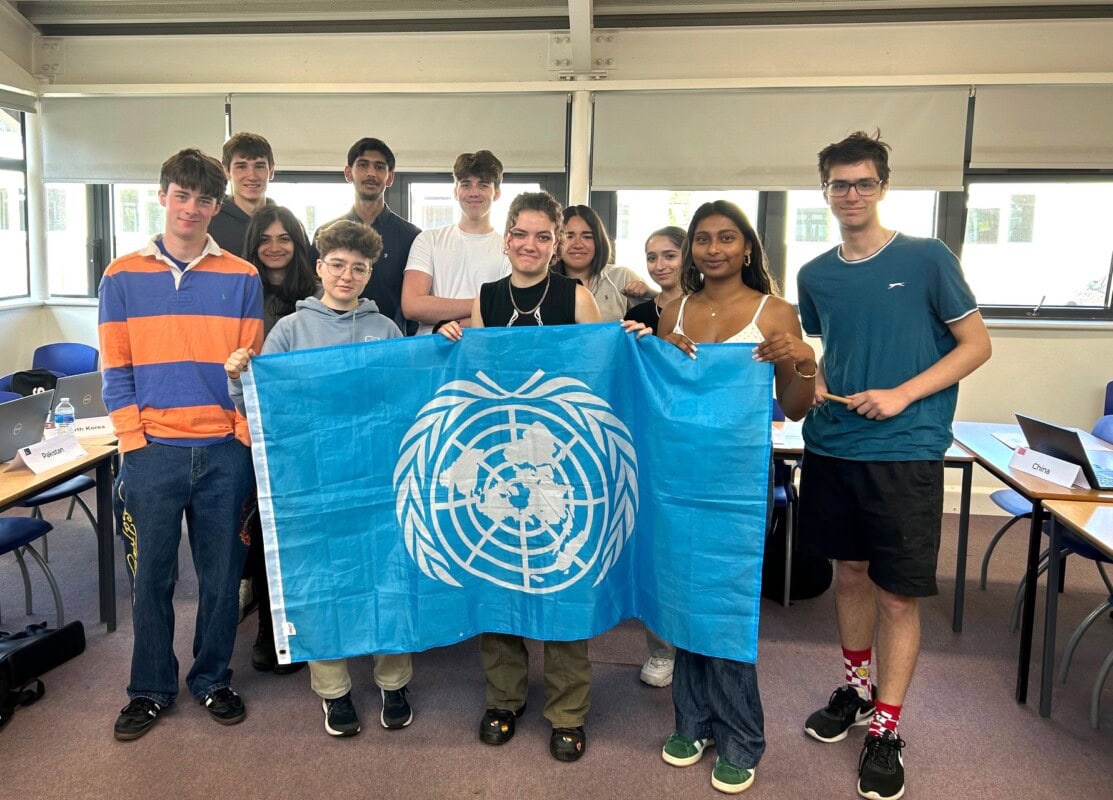Tackling World Affairs in Wider Skills Week
Constructed as an accurate simulation of real UN conferences, each student in the MUN course was assigned a country and encouraged to do research on its internal conflicts and governmental policies.
6.1 Student Kiran Walsh reports.

During the session we presented our speeches discussing our represented countries and government’s stance on the chosen topics i.e., ‘climate change’ and ‘responsibility to protect.’ At certain points, tensions were high as we were given the opportunity to contradict each other and attack other countries policies through the ‘right to reply.’ We also had the opportunity to propose a moderated caucus on world affairs that were based on our own interests including the Russia-Ukraine conflict and the Israel-Palestine conflict.
Not only did this further develop my understanding of international conflicts, but the experience also taught me fundamental skills: how to build an argument; think on my feet to formulate a persuasive rebuttal; and weigh up pros and cons to form a conclusion. This course has also strengthened my public speaking skills and self-confidence as we passionately persuaded our peers to agree with policies which were at times unfavourable.
At the end of each topic, an unmoderated caucus was proposed where we teamed up with countries of similar interests to agree a resolution. This was hard because although countries may have common enemies, there may still be many conflicting interests. You will then have the opportunity to negotiate in order to pass your country’s policies.
A crisis committee was formed on the last day where we were given many crises to formulate policies and approaches to address the conflict. This allowed me to think about varying aspects of a country’s needs and how to protect the country’s interests while balancing international relations.
Overall, this was a valuable experience, and I am grateful to have been part of it.